Once upon a time, back in 2005, I was solo trekking in New Zealand, and I was feeling a bit overwhelmed. It wasn’t because New Zealand was a particularly challenging place. After more than a decade of traveling in non-English-speaking destinations, this was my first overseas trip to an English-speaking country which made many of the logistics of travel much easier (though, in truth, in my jet-lagged state when I arrived in Auckland a few days earlier at 6 a.m. everyone may as well have been speaking Cantonese). And it wasn’t because the locals were difficult to deal with; Kiwis are some of the friendliest people I’ve ever encountered. No, my challenge was more basic. My challenge was me. You see, I was at the northern tip of the South Island (I think in a town called Picton, though I don’t remember for sure), about to leave my youth hostel, and I didn’t know where I was going. I had spent the previous evening making pasta and drinking cheap wine in the hostel’s communal kitchen, asking my fellow travelers for advice.
“South! Go south!” everyone said.
But south, where? There was so much to see on two tiny islands (and that wasn’t even including minuscule Stewart Island). I could have spent six weeks just in the southern part of the South Island and still not seen everything I wanted to see. In true La Wandereuse form, I simply could not make up my mind.
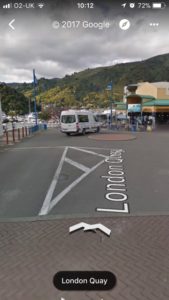
And so on this early morning my plan was to stroll to the bus station and ask the ticket agent to sell me a ticket to somewhere. As I walked on the quiet road in (maybe) Picton, I spotted her. First I saw the rugged pack, the symbol that united us as backpackers. Then I saw the smile, the biggest and brightest smile I’d ever seen. I had to stop to meet this person.
“Hi, I’m La Wander.”
“I’m Erica.”
“Where are you going?”
“I’m hitchhiking down to Dunedin.”
“Cool. Can I join you?”
“Sure.”
And that was that. I about faced, and Erica and I walked together in the opposite direction of the bus station. After a bit, we came upon a McDonald’s and quickly agreed that McD’s is the single greatest contribution from the USA to the rest of the world (1) for its breakfast sandwiches; and (2) for providing desperate tourists with western toilets in more than 100 countries worldwide.
At that moment I knew I had found a true friend.
But after two days of adventures together — including hitching a ride in a semi; befriending a British chap and taking him out for a pint in Dunedin; hiring a car and driving it across the island; and seeing 12,000 year-old glow worm caves at Te Anau — Erica and I didn’t see each other again for almost eight years. We loosely kept in touch via email and then more regularly through Facebook, but we didn’t have much of anything besides our meet cute to develop the friendship. Erica returned from her year-long travels, got a job, got married, had a baby, and bought a flat on the outskirts of London. I kept wandering, survived a series of heartbreaks, bought a condo, went through foreclosure. Then, five years ago, I spent a semester in Europe — two months in the UK and three months in France. I began with two weeks in London, my first trip there since I was a teenager. Erica and I made plans to meet up. I had that same nervous energy I have before a second date with a guy I really like. I knew we had clicked the first time we met, but would we still have it the second time out?
We did. We hung out several times while I was in London. I met her husband and her child (now children). She invited me and my mom over for Sunday roast when my mom came to visit me that spring. And since then we’ve seen each other multiple times. I’ve been back to London. We went to Northern Ireland to see the Giant’s Causeway. She’s come to stay with me in Paris. We’ve even played bingo.

When Erica came to Paris a few weeks ago, we talked at length about friendship in general — and about our friendship in particular. We agreed that while we have a unique connection, we’re not best friends, not even close.
“Close friendship requires work, real work,” she said to me over pints at Corcoran’s Irish pub in Montmartre. “You have to be involved in each other’s lives.”
“Exactly,” I said. “And it’s hard to build a foundation with someone you rarely see. But we’re more than casual acquaintances. You are I are something else.”
“We’re sort of like soul mates.”
“I’ll take it.” I was behind with my drinking, and so I poured half of my remaining beer into Erica’s empty glass. Erica, being British, happily obliged. She’s good like that.
Our conversation didn’t diminish our friendship. On the contrary, it defined it for what it is, which makes me appreciate it even more. Perhaps if Erica and I ever lived in the same city — or even the same country — we’d be more immersed in each other’s lives and would become BFFs. But maybe we wouldn’t. Maybe being geographically closer wouldn’t bring us emotionally closer together. Maybe we’d eventually hate each other. Maybe our friendship works best as a series of cherished moments spanning the years. Who knows? Right now, I’m content to have this kindred spirit in my life, someone I adore, who I see when we’re able to see each other. Someone who thinks it’d be cool to meet at an airport for an 8-hour layover (and then go our separate ways). It’s a type of friendship I need in my life, one I don’t have with anyone else. We both make these moments a priority, and that’s what matters.
***
I’m noticing the subject of friendship is sprouting up in conversations with friends more frequently. Perhaps it’s one of the stumbling blocks that comes with middle age, but a lot of friends of mine are going through rough patches in their friendships (sometimes myself included) and are feeling a bit adrift. Maybe a friend stops talking to them, or after an extended period of not seeing each other, when they finally do get together, something’s gone missing. More than one person I know has expressed confusion, even grief not just at the loss of a friend but more specifically at not knowing how to define a once-solid friendship, and at not knowing when and how to let go. The frustration isn’t just from what seems like the inevitable loss but more about how exactly to proceed. Is it time for “the talk”? Does there need to be some sort of formal break up? Or do they simply silently stop being friends?
The thing is, there aren’t that many guidelines for friendship. Not for starting friendships, not for working through the hurdles of friendships, not for ending friendships. We just become friends with someone. Which is fine until it’s not fine. There aren’t rows of self-help books at the book store, laying out clear strategies for how to navigate the stages of friendship like there are for the stages of romantic relationships (and we all know how difficult that can be). A few years ago I realized that I still referred to a friend of mine from graduate school as “my friend M” even though I hadn’t seen her or even heard from her in over a decade. Heck, I still refer to her as “my friend M.” We hadn’t gotten in a fight or gone through anything dramatic. No, I moved away after graduating and even though she was one of the best friends I’ve ever had, we quickly drifted apart. That doesn’t negate what we had. But it is a bit bewildering.
If a boyfriend vanishes from my life with no goodbye or explanation I don’t call him my boyfriend. He’s clearly my ex (and clearly worthy of being run over by a truck, though that’s a different story). Of course, in a romantic relationship there’s an expectation that when things end, there will be some sort of explicit closure. The reason so many people want to run over my ex with a truck isn’t because the relationship ended; it’s because it didn’t end. At least not officially. He just ceased to exist. But with friendships, we don’t have these same expectations. There isn’t even a language for former friends. We don’t typically refer to friends past as ex-friends. And we don’t have rituals to end our friendships like we have rituals to end relationships. Things just tumble along indefinitely until all of a sudden (or so it seems) the person is no longer in your life. Should we still call that person a friend? Can a person be a friend if we don’t know where on the planet they are? All of this, in my experience, can make the roadblocks we face in friendships — and especially the endings of friendships — confusing and painful.
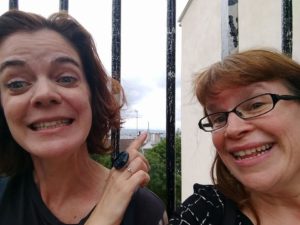
In talking with Erica, I am reminded of the importance of having a language for friendship that can help us better understand and appreciate the friendships we have. The fact is that different friendships exist for different reasons at different moments in our lives. When the moment changes, the friendship often needs to change as well. Friendships can evolve when something happens in a person’s life — someone gets married, someone gets divorced, someone has a baby, someone’s baby goes to college, someone moves closer, someone moves away. Sometimes this evolution brings us great joy and sometimes it brings us great sorrow.
In the end, though, when I think of friendships I’ve lost, I have to remind myself that over time things change, nothing is always, and that’s okay. Or at least I’m trying to learn that.
What do you think? How do you navigate the ups & downs of friendship?
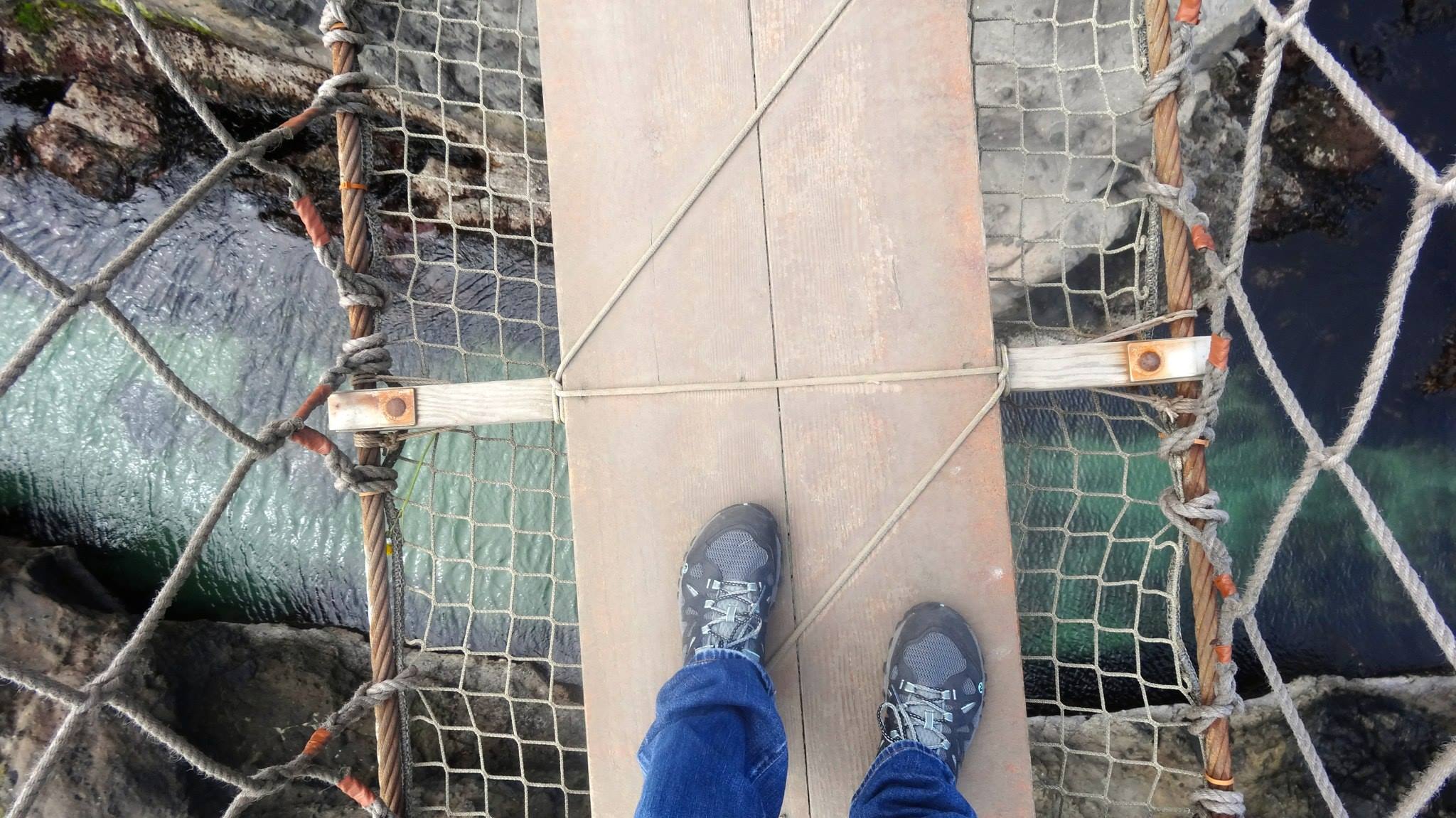



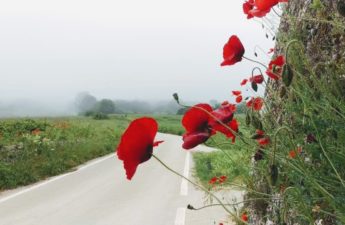
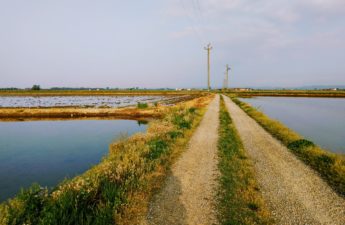
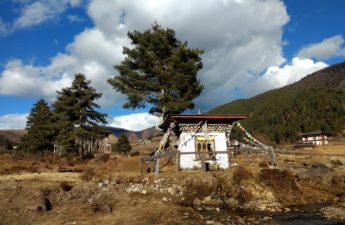
I am so honoured and humbled by this post. And it’s so amazing/bizarre to read your version of a story which I tell so regularly myself. You are such an awesome lady; fate was good to us that day. Also, god your philosophising is ace 😀
Well, you do make it easy to write about you with your awesomesauceness. Seriously. Fate was good to us that day. Can’t wait to see you in a couple of weeks! xo
I love that: “Fate was good to us that day.” And I love this. You’re right — there are so many more kinds of friendships than there are kinds of romantic relationships, and yet we lack the vocabulary for them…people (and therefore language) just haven’t prioritized them, I guess. And while I have a couple of actual ex-friends in my history — breakups as clear, to my mind at least, as any romantic breakup — most of the friends I’m not in touch with anymore are still friends by some definition.
I’ve heard a lot of people say that it’s harder at our age to make new friends. I wonder about that as I start this phase of Life Lived Elsewhere. Will I find kindred spirits in my new home(s)? Or will it be enough to connect whenever possible with the kindred spirits I already know?
Hmmm…
I was thinking of how I met you when I wrote this as well — how you and I have the ultimate modern friendship (met online, developed a friendship online that we’ve managed to carry over to real life). I suppose that’s a contemporary reinvention of the pen pal, though with the ability of technology to take us anywhere at anytime, it casts a bigger web.
I was also thinking of writing about the difficulties of making friends at this age, which is something else I’ve experienced. And I imagine that as the geography of your life changes, your friendships (old and new) will change as well. I know that I’m not finding it easy to make connections here — maybe for a conversation that lasts a few hours or a more impersonal one (such as the waiter who recognizes me at the café I go to regularly), but I think the language barrier combined with my age combined with the fact that I’m staying in an apartment (as opposed to a hostel, which would be horrid for so many months, especially at this age, but is always a good way to connect with others) makes it difficult. Hopefully, though, some of these smaller connections will grow.